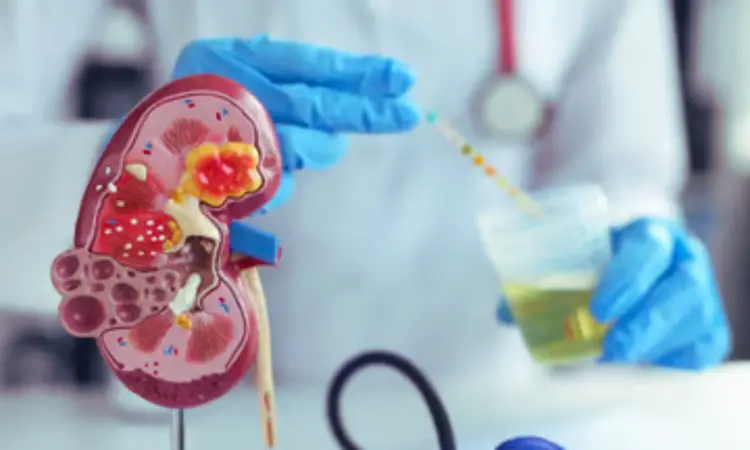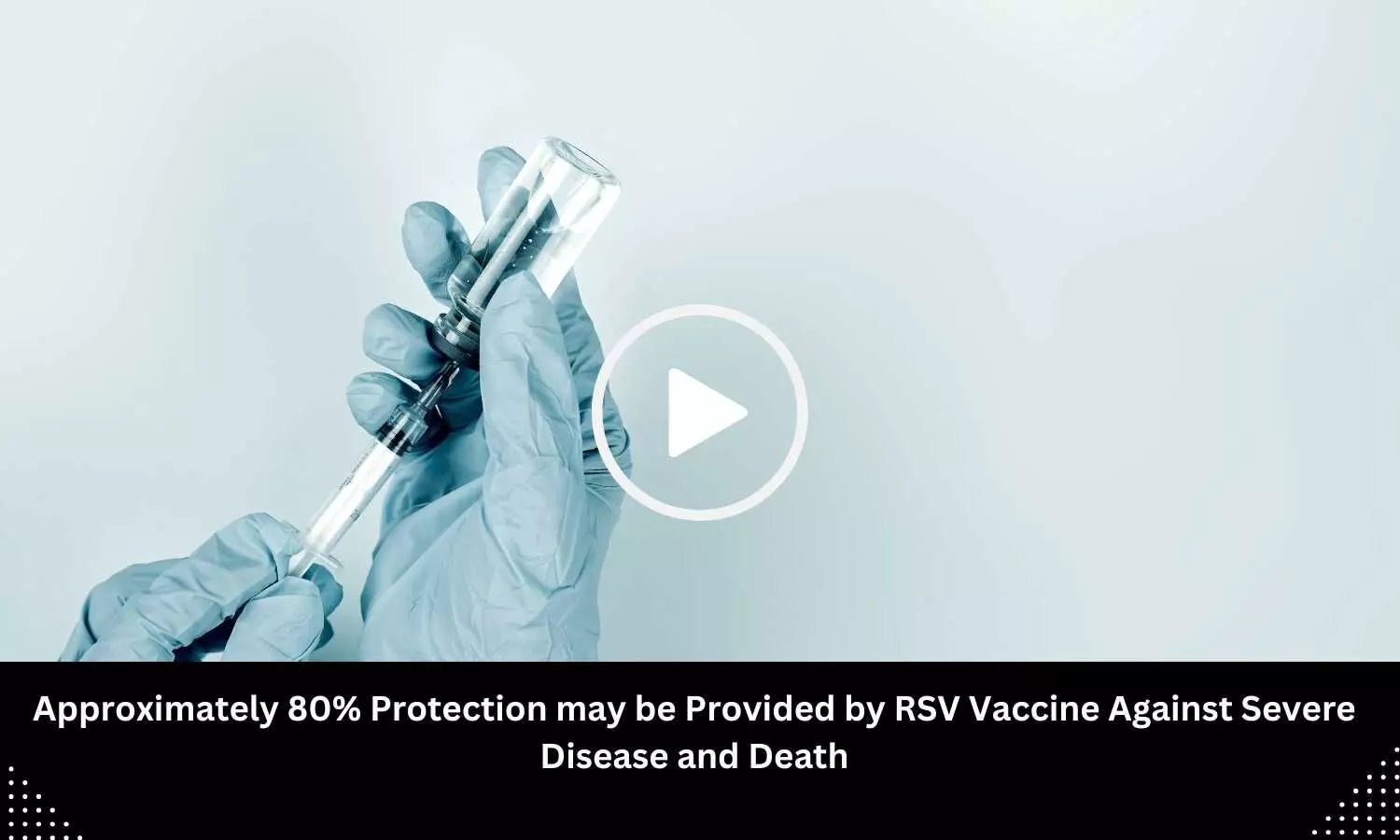- Home
- Medical news & Guidelines
- Anesthesiology
- Cardiology and CTVS
- Critical Care
- Dentistry
- Dermatology
- Diabetes and Endocrinology
- ENT
- Gastroenterology
- Medicine
- Nephrology
- Neurology
- Obstretics-Gynaecology
- Oncology
- Ophthalmology
- Orthopaedics
- Pediatrics-Neonatology
- Psychiatry
- Pulmonology
- Radiology
- Surgery
- Urology
- Laboratory Medicine
- Diet
- Nursing
- Paramedical
- Physiotherapy
- Health news
- Fact Check
- Bone Health Fact Check
- Brain Health Fact Check
- Cancer Related Fact Check
- Child Care Fact Check
- Dental and oral health fact check
- Diabetes and metabolic health fact check
- Diet and Nutrition Fact Check
- Eye and ENT Care Fact Check
- Fitness fact check
- Gut health fact check
- Heart health fact check
- Kidney health fact check
- Medical education fact check
- Men's health fact check
- Respiratory fact check
- Skin and hair care fact check
- Vaccine and Immunization fact check
- Women's health fact check
- AYUSH
- State News
- Andaman and Nicobar Islands
- Andhra Pradesh
- Arunachal Pradesh
- Assam
- Bihar
- Chandigarh
- Chattisgarh
- Dadra and Nagar Haveli
- Daman and Diu
- Delhi
- Goa
- Gujarat
- Haryana
- Himachal Pradesh
- Jammu & Kashmir
- Jharkhand
- Karnataka
- Kerala
- Ladakh
- Lakshadweep
- Madhya Pradesh
- Maharashtra
- Manipur
- Meghalaya
- Mizoram
- Nagaland
- Odisha
- Puducherry
- Punjab
- Rajasthan
- Sikkim
- Tamil Nadu
- Telangana
- Tripura
- Uttar Pradesh
- Uttrakhand
- West Bengal
- Medical Education
- Industry
Stress Hyperglycemia Ratio may predict one-year mortality in CKD and critically ill patients, suggests study

Stress Hyperglycemia Ratio (SHR) was found to be a meaningful and valuable biomarker for predicting one-year mortality in ICU-admitted chronic kidney disease (CKD) patients and high-risk patients as per a recent study that was published in the journal BMC Nephrology.
Recent trends show an acute increase in chronic kidney diseases globally associated with increased cardiovascular events, morbidities, and increased mortality rates. Critically sick patients were also found to have CKD and had increased mortality compared to non-CKD. Literature showed that stress hyperglycemia (SHR) is a new biomarker correlated with adverse clinical outcomes in ICU and chronically sick individuals. Hence researchers hypothesized an association between SHR and CKD and investigated the relation between SHR and one-year all-cause mortality rate in ICU-admitted CKD patients.
By utilizing data from the Medical Information Mart for Intensive Care IV (MIMIC-IV) database, Patients diagnosed with CKD and with data of admission blood glucose (ABG) and glycated hemoglobin (HbA1c) were included. The primary endpoint was the incidence of all-cause mortality within one year follow-up. Multivariate restricted cubic spline (RCS) regression analysis was employed to visualize the relationship between SHR and one-year mortality, using 5 knots.
Findings:
- About 1825 CKD patients were included in the study.
- The multivariate RCS analysis showed a “U-shaped” relationship between SHR and one-year mortality indicating that both high and low levels of SHR were associated with increased mortality risk.
- Based on these results the study population was categorized into three groups: Group 1 (SHR<0.70), Group 2 (0.70≤SHR≤0.95), and Group 3 (SHR>0.95).
- The one-year outcomes were better in group 2 compared to the other two groups (p=0.0031) suggesting that moderate SHR levels were associated with better outcomes.
- Subgroup analysis also showed persistent results of this survival benefit as stratified by age, sex, CKD stage, anemia, and various clinical conditions
Thus, the study concluded that SHR is a valuable tool for physicians to assess the one-year mortality rate in ICU-admitted CKD patients.
Take-home points:
- Stress hyperglycemia is an indicator of inflammatory and neuro-hormonal derangements during acute conditions and is a more reliable biomarker than admission glucose level and fasting blood glucose.
- A U-shaped correlation indicates that high and low values increase the risk of death
- It is a better biomarker tool for clinicians to monitor ICU-admitted CKD patients
- It helps to identify the high-risk individuals and improve the prognostic accuracy.
- SHR is a valuable tool to manage glucose levels in critically ill and CKD patients.
Further Reading: An S, Ye Z, Che W, et al. Predictive value of stress hyperglycemia ratio on one-year mortality in chronic kidney disease patients admitted to intensive care unit. BMC Nephrol. 2024;25(1):358. Published 2024 Oct 17. doi:10.1186/s12882-024-03823-4
Dr Kartikeya Kohli is an Internal Medicine Consultant at Sitaram Bhartia Hospital in Delhi with super speciality training in Nephrology. He has worked with various eminent hospitals like Indraprastha Apollo Hospital, Sir Gangaram Hospital. He holds an MBBS from Kasturba Medical College Manipal, DNB Internal Medicine, Post Graduate Diploma in Clinical Research and Business Development, Fellow DNB Nephrology, MRCP and ECFMG Certification. He has been closely associated with India Medical Association South Delhi Branch and Delhi Medical Association and has been organising continuing medical education programs on their behalf from time to time. Further he has been contributing medical articles for their newsletters as well. He is also associated with electronic media and TV for conduction and presentation of health programs. He has been associated with Medical Dialogues for last 3 years and contributing articles on regular basis.




